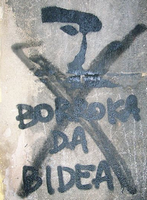The violent Basque separatist group ETA recently declared a definitive end to its armed activity, 52 years after its founding. The declaration came in response to an appeal made on Oct. 17 by a group of international peacemakers, led by former U.N. Secretary-General Kofi Annan, that gathered in San Sebastián, Spain, for a carefully choreographed peace conference to help bring a close to what the group called “the last armed confrontation in Europe.”
The phrase, and the presence of the peacemakers, irritated many in Spain who see ETA’s actions solely in terms of terrorism and have long considered the organization a defeated force. Yet the brief intervention did the trick. Members of Batasuna, the banned political party affiliated with ETA, subscribed to the international appeal the next morning. ETA’s response came just 36 hours later.
Progress toward getting ETA to renounce its armed activity can be attributed to many factors: successful police action in Spain and France that decimated the organization, an intense legal campaign against Batasuna and the widespread rejection of ETA’s violence by Basque society. However, the end to violence would not have been achieved without the unilateral process set in motion by Batasuna after the collapse of peace talks launched by Prime Minister José Luis Rodríguez Zapatero in 2005. Nor could it have taken place without discreet support, advice and at times political cover provided by a variety of international facilitators. Overall, the process illustrates the benefits of “policing down” a terrorist campaign, but also the impossibility of “policing it out” -- as Sir Hugh Orde, former head of the Northern Ireland Police Service, put it in May 2008 -- without dialogue of some kind.

